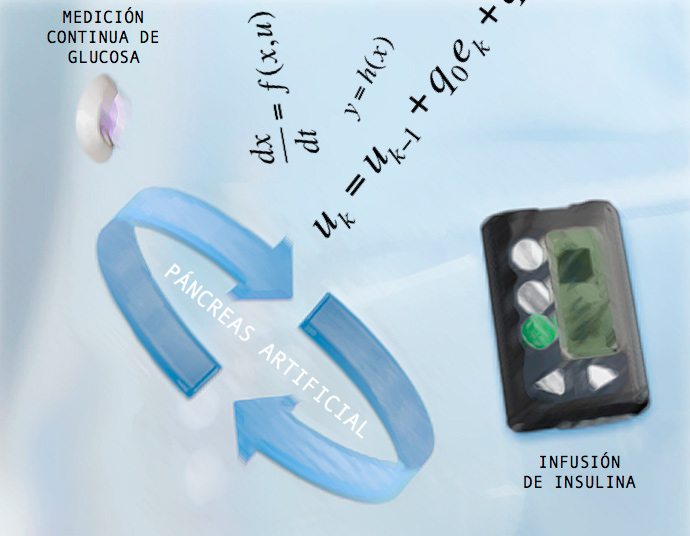
PROJECTS
SOLARE
Seeking solutions for the artificial pancreas: new methods for improving continuous
glucose monitoring and closed loop postprandial glycaemic control

Administrative Data
Project reference: FP7-PEOPLE-2009-IEF, ref 252085
Title: Seeking solutions for the artificial pancreas: new methods for improving continuous glucose monitoring and closed loop postprandial glycaemic control – SOLARE
Participating centers: Universitat Politècnica de València
Principal Investigator: Jorge Bondia (Host); Paolo Rossetti (Fellow)
Funded by: European Community
Duration: 01/10/2010-01/10/2012
Funding awarded: €160,793.00
Project Summary
Over the past two decades, technological progress has driven research into closed-loop glucose control systems, known as artificial pancreases, for the efficient treatment of type 1 diabetes. Preliminary studies using commercial insulin pumps and continuous glucose monitors (CGMs) suggest that, in controlled environments, automated insulin delivery systems can achieve better glycemic control than self-directed open-loop systems. These promising results led the Juvenile Diabetes Research Foundation (JDRF) to advance this research by launching its Artificial Pancreas project three years ago, and the U.S. Food and Drug Administration (FDA) to designate the artificial pancreas as a priority in its Critical Path Initiative. However, to date, only a few prototypes have been developed and validated in controlled hospital settings. Challenges remain, such as:
1. Coping with major perturbations affecting the system, such as meals and exercise;
2. Robustness to the high variability of patient physiological behavior;
3. Accuracy and reliability of continuous glucose monitors, which need to be improved;
4. Safety of insulin pumps and fault detection;
5. Adequate correction of slow controller action due to delays in the control loop.
The overall objective of this project is to develop a safe and efficient closed-loop blood glucose monitoring system after a meal. This will be achieved through:
1. The development of new closed-loop strategies for postprandial monitoring. A new algorithm for optimizing postprandial monitoring will be clinically validated. Clinical results will drive the development of new closed-loop strategies to adequately compensate for meals without the risk of hypoglycemia.
2. The improvement of the accuracy and reliability of continuous glucose monitors for detecting hypoglycemia. Continuous glucose monitors estimate plasma glucose from interstitial measurements. However, the relationship between plasma and interstitial glucose is still poorly understood, especially under dynamic conditions. This project will evaluate and model this relationship with the specific goal of developing new calibration strategies that improve the performance of continuous glucose monitors in hypoglycemia.
It is expected that improvements in control algorithms and measurement accuracy will allow for the performance and safety required for automatic post-ingestion monitoring.
Researchers
Universitat Politècnica De València:
- Jorge Bondia (host)
- Paolo Rossetti (fellow)
Hospital Clínico de Valencia
- F. Javier Ampudia
